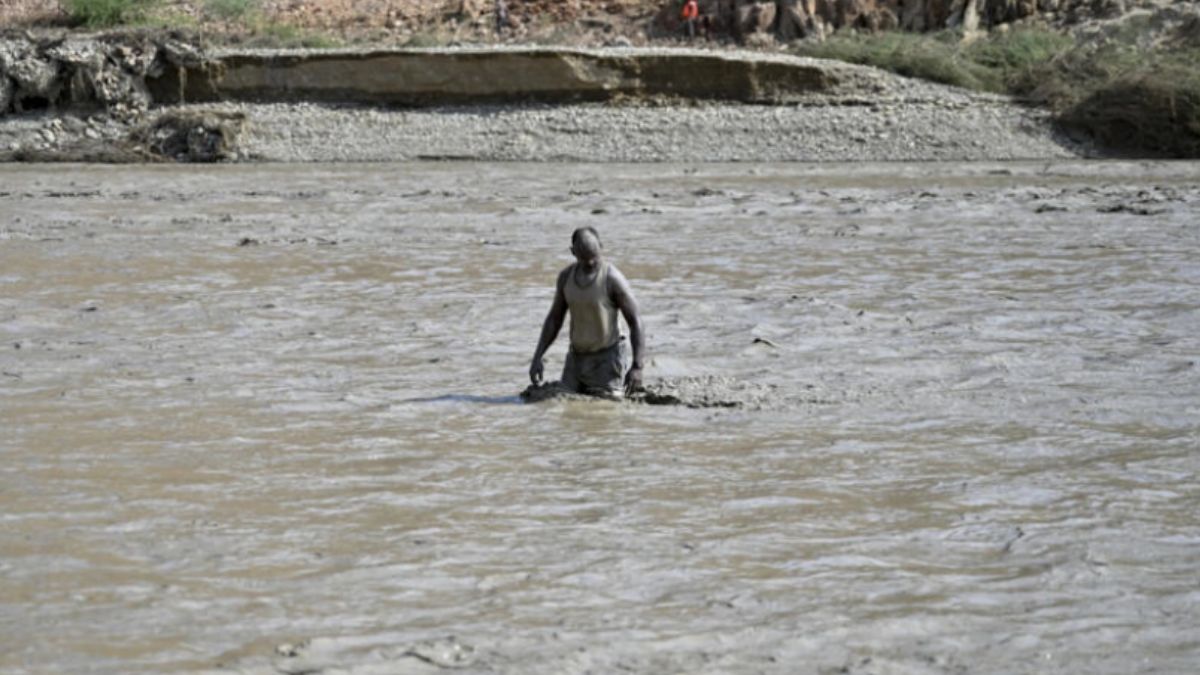Communist Party of Nepal-Unified Marxist Leninist (CPN-UML) Chairman Oli on Friday staked his claim to lead a new majority government by presenting his claim before President Ramchandra Paudel with the support of 165 lawmakers, including 77 from his party and 88 from the Nepali Congress. read more
)
K P Sharma Oli. File Photo
K P Sharma Oli is set to become Nepal’s prime minister once again after incumbent Prime Minister Pushpa Kamal Dahal ’Prachanda’ on Friday failed to win a trust vote in Parliament after surviving four times in the past, amidst frequent political turmoil in the Himalayan nation.
Communist Party of Nepal-Unified Marxist Leninist (CPN-UML) Chairman Oli on Friday staked his claim to lead a new majority government by presenting his claim before President Ramchandra Paudel with the support of 165 lawmakers, including 77 from his party and 88 from the Nepali Congress.
Although fringe parties, including the Janata Samajbadi Party (JSP), JSP-Nepal, Loktantrik Samajbadi Party, Janamat Party and Nagarik Unmukti Party are in favour of the Congress-UML coalition government, Oli staked a claim showing the support of only UML and Congress to the President.
“We have staked a claim for the new government before the President. Now, it’s up to him to decide when to make the appointment,” said Ramesh Lekhak, Congress chief whip.
Prime Minister Prachanda, also the chairman of the Communist Party of Nepal-Maoist Centre (CPN-MC), faced the trust vote as Oli-led CPN-UML withdrew support from his government last week after inking a power-sharing deal with the largest party in the House – the Nepali Congress (NC) – led by Sher Bahadur Deuba.
Prachanda, 69, lost his position on Friday, over 18 months after his appointment, as he failed to secure a vote of confidence during a floor test in the House of Representatives.
He failed to secure the 138 votes required to endorse the trust motion as only 63 lawmakers voted in his favour in the 275-strong House of Representatives. A total of 194 lawmakers voted against him, over 18 months after becoming prime minister on December 25, 2022.
Friday’s trust vote was the fifth time Prachanda tested himself on the floor after he was appointed prime minister some 18 months ago. During the first confidence vote on January 10, 2023, he received strong support with 268 votes.
In the second floor test on March 20, 2023, after the UML-Maoist alliance broke, he secured 172 votes in Parliament. In the third vote of confidence held on March 13, 2024, after forming a new alliance with the UML, Prachanda received 157 votes.
On May 21, 2024, following the JSP split, he secured 157 votes with no opposition votes registered.
With Prachanda the trust vote on his fifth attempt, CPN-UML Chairman Oli is now expected to become the prime minister for a fourth time with the support of the Nepali Congress.
Oli is known for his pro-Beijing stance and it would be interesting to see how he maintains ties of equi-proximity with both India and China.
Ties between India and Nepal came under severe strain in 2020 after Kathmandu published a new political map that showed the three Indian territories – Limpiyadhura, Kalapani and Lipulekh – as part of Nepal. Oli who was prime minister then had attempted to use the issue to fend off increasing domestic pressure and challenge his leadership.
Nepal’s President had earlier called on political parties to stake claim to form the new government with a Sunday evening deadline to prove the majority.
“President Paudel called on members of the House of Representatives (HoR) to stake a claim for the post of prime minister showing a majority with the support of two or more political parties in the lower house,” a statement from the Office of Paudel said.
The President has called on the House members to present the majority through the support of parties represented in the lower house by 5 pm on Sunday, it added.
The NC has 89 seats in the HoR, while CPN-UML has 78. Their combined strength of 167 is much more than the 138 required for a majority in the lower house.
Deuba has already endorsed Oli as the next prime minister as per the 7-point deal both parties agreed upon on Monday before toppling Prachanda-led government.
According to the agreement, Oli and Deuba will share the premiership during the remaining period of the House of Representatives; in the first phase Oli will become the Prime Minister for one and a half years and then, Deuba will take the post for the rest of the period.
Nepal has had 13 governments in the last 16 years, indicating the fragile nature of the Himalayan nation’s political system.
Earlier, Prachanda sharply criticised the alliance formed between the NC and the UML and accused the two largest parties of forming their coalition out of fear rather than shared principles.
”If the NC and the UML were united by common beliefs or goals, I would not be concerned. Instead, they are bound by a fear of good governance,” he said.
While questioning if the public had approved this alliance, he voiced concerns about potential regression and autocracy, asserting that the NC and the UML had joined forces as good governance began to take root in the country.
He argued that, in a healthy democracy, the main opposition party should not form the government, accusing the NC and the UML of pushing the nation toward regression.
NC Chief Whip Ramesh Lekhak responded to Dahal’s accusations by defending the party’s commitment to safeguarding the constitution and democracy.
”It is a party that has made history by aligning the most prominent anti-democrats in the history of democracy. We should refrain from making comments based on imagination and assumptions,” he said.
Deputy Prime Minister and Home Minister Rabi Lamichhane, who is also the chairman of Rastriya Swatantra Party, questioned the legitimacy of the overnight agreement between the NC and the UML.
”We will only know who is being protected in the name of safeguarding the Constitution once the agreement is made public. However, my party and I cannot accept that it is an agreement to safeguard the Constitution.

 3 months ago
20
3 months ago
20
)
)
)
)
)
)
)
)
)
)
)
)
)
)
)
)
)
)
)
)
)
)
)
)
)
 English (US) ·
English (US) ·